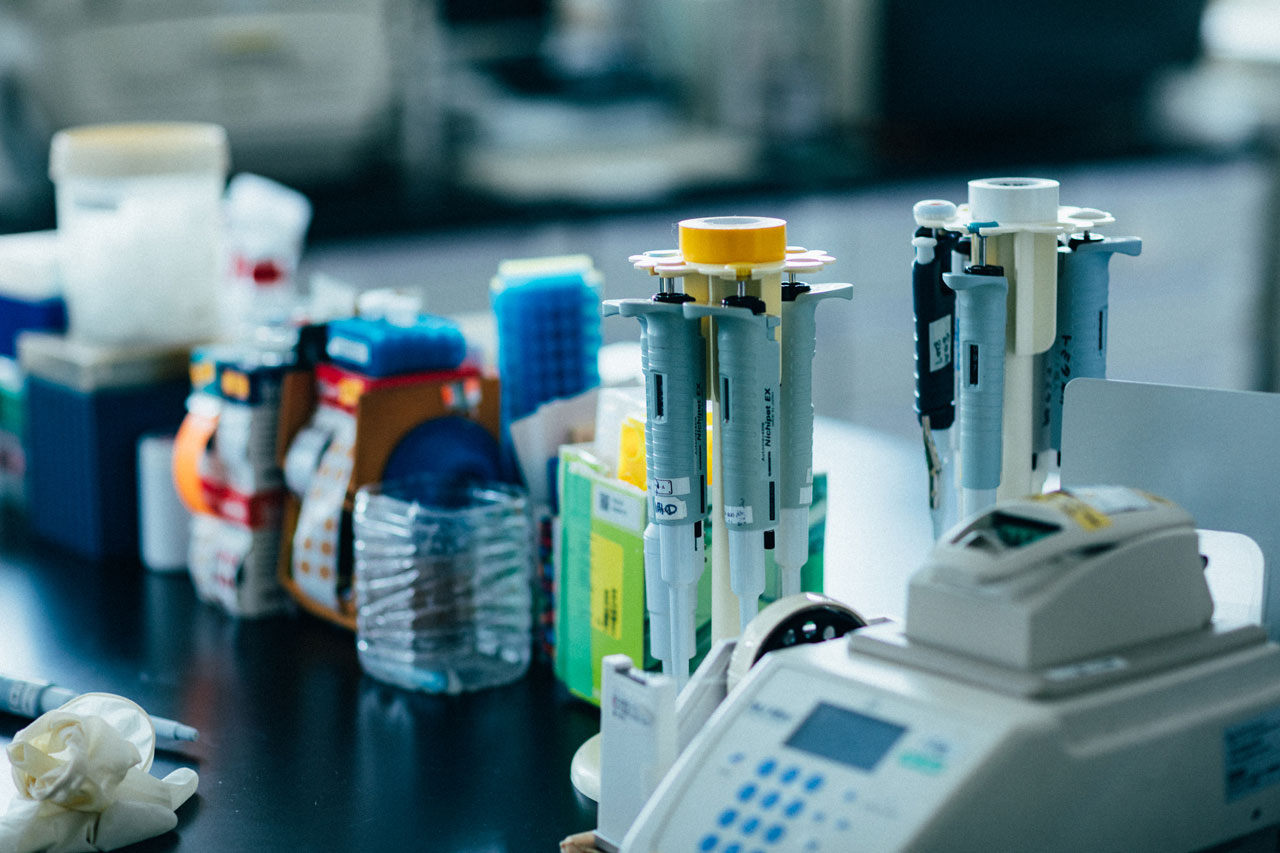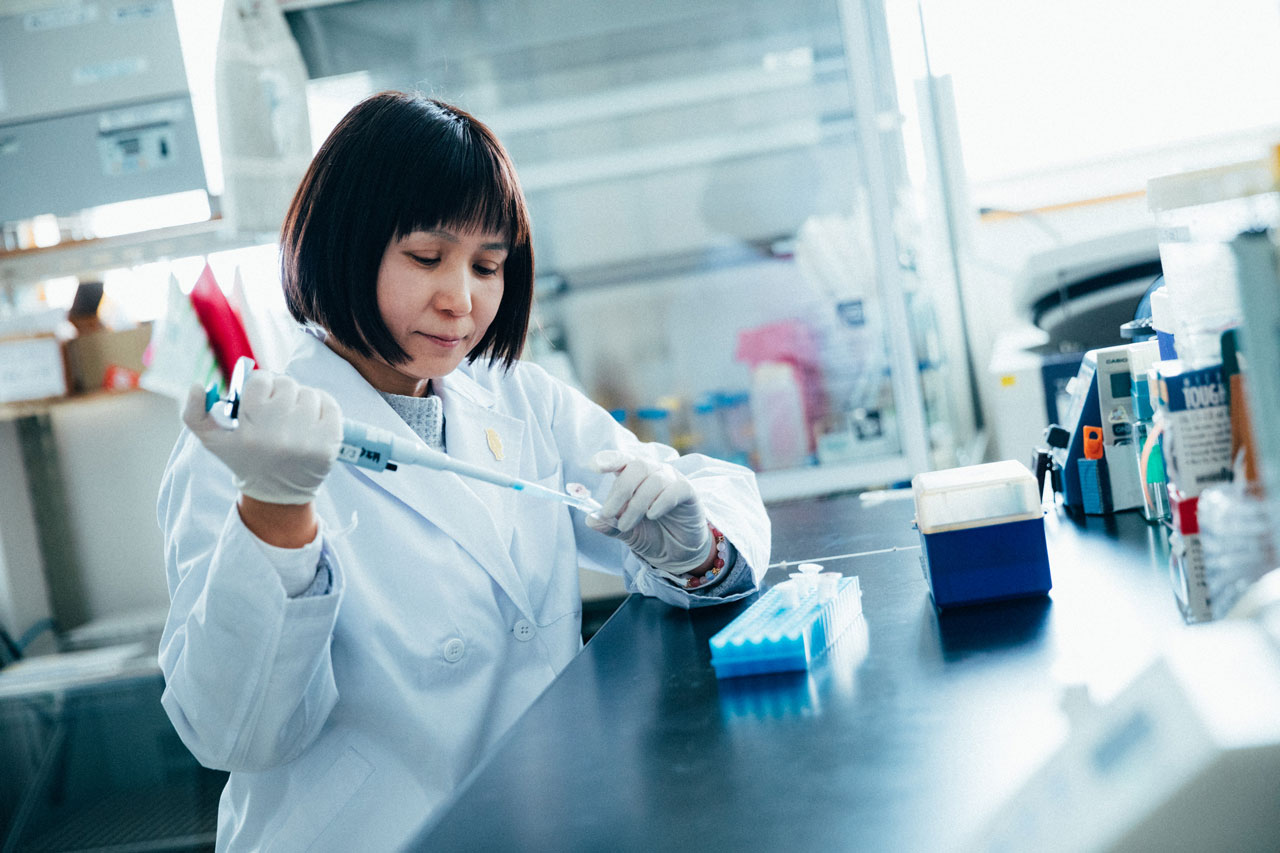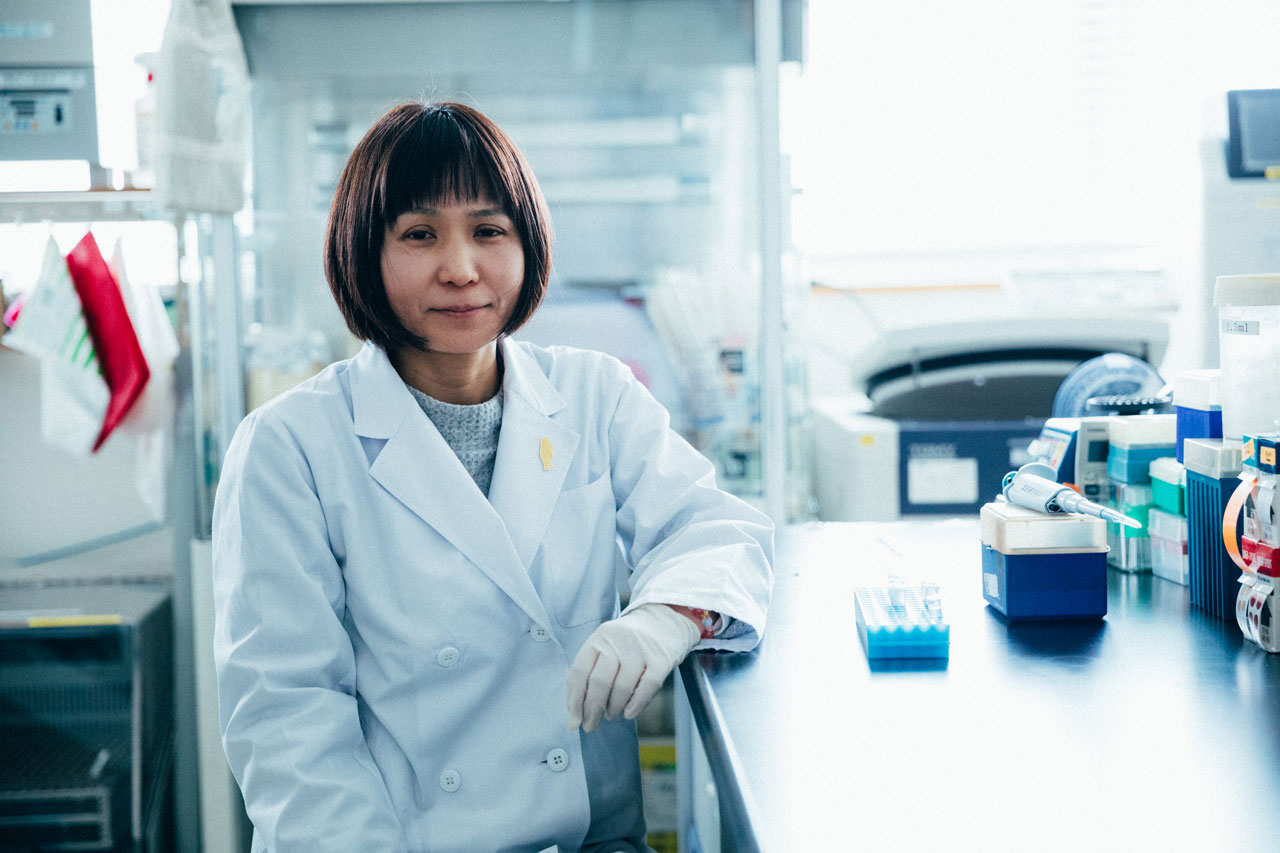The power to imagine future changes the world
Eriko Sugano, Doctor of Philosophy in Life Scienceachievements→
Dr. Sugano is an associate professor at Biological Sciences, Faculty of Science and Engineering, Iwate University and a visiting researcher at the Laboratory for Adaptive Intelligence, RIKEN, Japan. She specializes in cell engineering and vision science.
Recovery of light perception leads to better QOL
There are said to be nearly 300,000 patients with Level 1 visual impairment. These patients receive treatment to delay retinal degeneration. However, this is not always effective. Once blindness occurs, there is no way to regain the lost eyesight.
Among the nerve cells that comprise the retina, photoreceptor cells are the first that receive light. Once a photoreceptor cell degenerates, it cannot recover, which results in blindness. By applying optogenetics, we are engaged in research that enables the final output cells of the retina, which remain intact after degeneration of the photoreceptor cells, to receive light so that eyesight can be regained. The recovery of light perception (the ability to sense light) may enable a visually-impaired person to see what is going on around him and improve his quality of life.

A journey has begun to return light to the eyes of the blind
My turning point came when Dr. Makoto Tamai, my mentor who was a former professor in the department of ophthalmology at Tohoku University (Medicine), gave me a research opportunity. I began to study ophthalmology. Everything I saw and heard was new to me because I had spent most of my time at school culturing lactic acid bacteria. Based on this, a study combining healthcare and engineering was subsequently commenced and we became involved in the area of ophthalmology. This gave me a chance to learn about the reconstruction of visual function to restore eyesight to an eye that had completely lost its visual function. The research on artificial retinas, exactly machine eyes, marked the beginning of our journey to return light to the eyes of the blind.

Do something to benefit society in the near future
We have to do what no one else has ever done. Otherwise, we won’t be able to continue this research. Our team consists of a much smaller number of staff members and researchers than a major laboratory. Even maintaining a research environment is difficult for us. A small, local national university like ours has a small budget and cannot afford to properly maintain equipment. This is why we always give priority to what we need to do now. We don’t have the luxury of time to do the research that will be not useful to society in the near future. Having this kind of sense of urgency may not be always right, but there is no doubt that our work is driven by this sense of urgency and also the feeling of tension toward achieving goals by doing our best. What can we do for the benefit of the people that have lost their sight of light and became blind? What remains undone? Could we use this or that? We think about these things as we devote ourselves to our research.

What we imagine shapes our future
Nearly two decades have passed since we broke into ophthalmology in 1999. Research techniques, equipment, analysis times and many other things have changed significantly. Looking back, we used floppy disks to save experiment data. They were replaced by MO disks and then USB. Hard disks and Blu-ray disks emerged. Internet connections are now wireless. We don’t have to carry heavy dictionaries anymore. The technological advance will continue and accelerate within the next ten or twenty years. The world we currently dream of is likely to have come true by then. We will keep imagining the future no matter what happens. By imagining the future and believing in our potential, someday we can change the world using a method that we have never even considered before.
